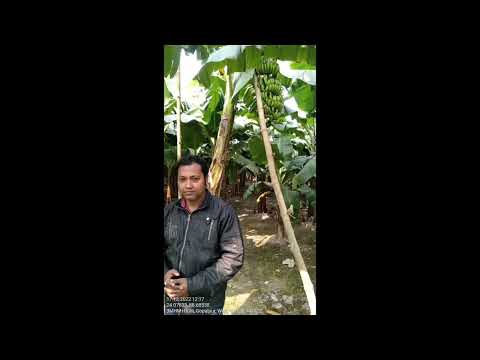Sustainable Crop Protection: Mastering Resistance Management for Summer Grain Legumes with Farmonaut

“Helicoverpa spp. affects at least 3 major crops: summer grain legumes, maize, and sorghum.”
In the face of climate change and evolving pest pressures, we find ourselves at a critical juncture in agriculture. The need for sustainable crop protection strategies has never been more pressing, particularly when it comes to managing resistance in summer grain legumes. As we delve into this comprehensive guide, we’ll explore innovative approaches to combat Helicoverpa spp., a significant pest affecting not only summer grain legumes but also maize and sorghum. Our focus will be on integrating cutting-edge technology with time-tested agricultural practices to ensure the longevity and effectiveness of our crop protection methods.
The Challenge of Resistance Management in Summer Grain Legumes
Resistance management is a cornerstone of sustainable agriculture. As pests like Helicoverpa spp. evolve to withstand traditional control methods, we must adapt our strategies to stay ahead. The summer grain legume sector, which includes crops such as chickpeas, mung beans, and other pulses, is particularly vulnerable to these adaptive pests. The challenge lies not just in controlling current infestations but in preserving the efficacy of our control methods for future seasons.
Understanding the Impact of Helicoverpa spp.
Helicoverpa spp., commonly known as budworms or bollworms, are notorious for their ability to cause significant crop loss. These pests target a wide range of crops, but their impact on summer grain legumes can be particularly devastating. The voracious appetite of Helicoverpa larvae can lead to:
- Reduced yield due to direct feeding on grains and legumes
- Quality degradation of harvested crops
- Increased production costs due to the need for pest control measures
- Potential contamination issues affecting food safety
To combat these issues effectively, we must employ a multifaceted approach that combines traditional wisdom with modern technology.
Innovative Strategies for Resistance Management
At the heart of our resistance management strategy is the concept of integrated pest management (IPM). This holistic approach considers all available pest control techniques and integrates measures that discourage pest population development while keeping pesticide use to levels that are economically justified and safe for human health and the environment.
1. Insecticide Rotation: A Cornerstone of Resistance Management
One of the most effective strategies in our arsenal is the rotation of insecticides with different modes of action (MoA). This practice helps prevent the development of resistance by exposing pest populations to varied chemical challenges, making it difficult for them to adapt to any single control method.
| Insecticide Group | Active Ingredient | Target Pest | Application Window | Resistance Risk |
|---|---|---|---|---|
| Carbamates | Methomyl | Helicoverpa spp. | Early season | Medium |
| Pyrethroids | Alpha-cypermethrin | Helicoverpa spp. | Mid-season | High |
| Organophosphates | Chlorpyrifos | Helicoverpa spp. | Late season | Medium |
| Spinosyns | Spinetoram | Helicoverpa spp. | Throughout season | Low |
| Avermectins | Emamectin benzoate | Helicoverpa spp. | Mid to late season | Low |
Note: Integrate biopesticides like Bacillus thuringiensis into the rotation for enhanced sustainability.
2. Implementing the “Window” Approach
The “window” approach to insecticide application is a strategic method that limits the use of specific insecticide groups to defined periods within the growing season. This practice helps to:
- Reduce selection pressure on pest populations
- Preserve beneficial insects by providing refuge periods
- Optimize the efficacy of each insecticide group
By adhering to these windows, we can significantly slow down the development of resistance while maintaining effective pest control.
3. Leveraging Biopesticides for Sustainable Control
Biopesticides, such as those based on Bacillus thuringiensis (Bt), offer a powerful tool in our resistance management strategy. These biological control agents provide several advantages:
- Specificity to target pests, minimizing harm to beneficial insects
- Reduced environmental impact compared to synthetic pesticides
- Lower risk of resistance development due to their complex modes of action
Integrating biopesticides into our rotation strategy can significantly enhance the sustainability of our pest control efforts.
The Role of Technology in Modern Pest Management
As we strive for more sustainable and effective pest management strategies, technology plays an increasingly crucial role. This is where Farmonaut’s innovative solutions come into play, offering farmers unprecedented insights and control over their crops.
Satellite-Based Crop Monitoring with Farmonaut
Farmonaut’s satellite-based crop health monitoring system revolutionizes how we approach pest management in summer grain legumes and other crops. By providing real-time data on crop health, this technology enables farmers to:
- Detect pest infestations early, before significant damage occurs
- Monitor the effectiveness of applied pest control measures
- Make data-driven decisions on when and where to apply insecticides
This level of precision not only improves the efficacy of pest control efforts but also contributes to more sustainable farming practices by reducing unnecessary pesticide applications.
AI-Powered Advisory Systems
Farmonaut’s Jeevn AI advisory system takes crop protection to the next level by providing personalized recommendations based on real-time data. This system can:
- Predict pest outbreaks based on weather patterns and historical data
- Suggest optimal timing for insecticide applications
- Recommend the most effective control measures based on current pest pressures and resistance profiles
By leveraging AI and machine learning, Farmonaut empowers farmers to make informed decisions that maximize the effectiveness of their resistance management strategies.
“Rotating between 4-5 different insecticide modes of action is crucial for effective resistance management.”
Best Practices for Sustainable Crop Protection
While technology provides us with powerful tools, the foundation of effective resistance management lies in adhering to best practices. Here are key strategies that every farmer should implement:
1. Regular Monitoring and Threshold-Based Applications
Implementing a robust monitoring program is crucial for effective pest management. This involves:
- Regular field scouting to assess pest populations
- Using pheromone traps to monitor adult moth activity
- Applying insecticides only when pest populations reach economic thresholds
Farmonaut’s technology can significantly enhance these monitoring efforts by providing satellite imagery that highlights areas of potential pest activity.
2. Proper Spray Techniques and Application Timing
The effectiveness of insecticide applications depends greatly on how and when they are applied. Best practices include:
- Calibrating spray equipment regularly to ensure accurate application rates
- Timing applications to target the most vulnerable life stages of pests
- Considering environmental conditions to maximize efficacy and minimize drift
Farmonaut’s weather forecasting capabilities can help farmers choose the optimal windows for insecticide applications, improving both efficacy and environmental stewardship.
3. Preserving Beneficial Insects
Maintaining a healthy population of beneficial insects is crucial for sustainable pest management. Strategies to achieve this include:
- Using selective insecticides that target specific pests
- Implementing border plantings or refuges to provide habitat for beneficial insects
- Avoiding broad-spectrum insecticide applications whenever possible
By preserving natural enemies of Helicoverpa spp., we can reduce our reliance on chemical controls and promote a more balanced ecosystem within our fields.
Explore Farmonaut’s API for advanced agricultural data integration
The Future of Crop Protection: Integrating Biotechnology and Plant Science
As we look to the future of crop protection, the integration of biotechnology and advanced plant science offers exciting possibilities for enhancing resistance management in summer grain legumes and other crops.
1. Genetically Modified Crops
While controversial in some circles, genetically modified (GM) crops that express insecticidal proteins can play a significant role in resistance management. These crops can:
- Provide season-long protection against target pests
- Reduce the need for foliar insecticide applications
- Offer a highly specific mode of action that minimizes impact on non-target organisms
However, it’s crucial to implement proper stewardship practices to preserve the longevity of this technology and prevent resistance development.
2. RNA Interference (RNAi) Technology
RNA interference represents a cutting-edge approach to pest control that targets specific genes within pest species. This technology offers several advantages:
- Highly specific pest control with minimal environmental impact
- Potential to overcome existing resistance mechanisms
- Ability to target pests at various life stages
As this technology develops, it may provide farmers with powerful new tools for managing Helicoverpa spp. and other challenging pests in summer grain legumes.
Adapting to Climate Change: The Role of Resistance Management
As our climate continues to change, the challenges faced by farmers in managing pests like Helicoverpa spp. are likely to intensify. Rising temperatures and shifting precipitation patterns can lead to:
- Extended pest activity seasons
- Expansion of pest ranges into new areas
- Increased reproductive rates of pest species
In this context, robust resistance management strategies become even more critical. Farmonaut’s technology can play a crucial role in helping farmers adapt to these changes by providing:
- Real-time climate data and long-term trend analysis
- Predictive models for pest activity based on changing environmental conditions
- Adaptive management recommendations that evolve with the changing climate
Access Farmonaut’s API Developer Docs for in-depth integration guidance
The Economic and Environmental Benefits of Effective Resistance Management
Implementing comprehensive resistance management strategies in summer grain legumes and other crops offers significant economic and environmental benefits:
Economic Advantages:
- Reduced crop losses, leading to higher yields and increased profitability
- Lower long-term pest control costs as insecticides remain effective
- Potential premium prices for crops grown using sustainable practices
Environmental Benefits:
- Reduced pesticide use and environmental contamination
- Preservation of beneficial insect populations and biodiversity
- Improved soil health due to reduced chemical inputs
By leveraging Farmonaut’s technology to implement these strategies, farmers can achieve a balance between productivity and environmental stewardship.
Conclusion: A Holistic Approach to Sustainable Crop Protection
As we face the dual challenges of feeding a growing global population and preserving our environment, effective resistance management in summer grain legumes and other crops becomes paramount. By integrating traditional agricultural wisdom with cutting-edge technology like that offered by Farmonaut, we can create a sustainable future for agriculture.
Key takeaways for mastering resistance management include:
- Implementing diverse control strategies, including insecticide rotation and biopesticides
- Leveraging technology for precise monitoring and targeted interventions
- Adapting practices to address the challenges posed by climate change
- Prioritizing environmental stewardship alongside agricultural productivity
As we move forward, the integration of advanced technologies like Farmonaut’s satellite-based monitoring and AI advisory systems will play an increasingly crucial role in helping farmers implement these strategies effectively. By embracing these innovations and committing to sustainable practices, we can ensure the long-term viability of our agricultural systems and the health of our planet.
FAQs
- What is resistance management in crop protection?
Resistance management involves strategies to prevent or slow down the development of pest resistance to control methods, particularly insecticides. It includes practices like rotating different modes of action, using integrated pest management, and monitoring pest populations. - How does Farmonaut’s technology contribute to resistance management?
Farmonaut provides satellite-based crop monitoring and AI-powered advisory systems that help farmers detect pest issues early, make informed decisions on pest control, and implement targeted interventions, reducing unnecessary pesticide use and slowing resistance development. - What are the key benefits of implementing effective resistance management strategies?
Benefits include sustained efficacy of pest control methods, reduced crop losses, lower long-term pest management costs, and decreased environmental impact through reduced pesticide use. - How can farmers integrate biopesticides into their resistance management strategy?
Farmers can use biopesticides like Bacillus thuringiensis as part of their insecticide rotation plan. These biological control agents offer a different mode of action and can help preserve beneficial insects while controlling target pests. - What role does climate change play in resistance management for summer grain legumes?
Climate change can alter pest behavior and distribution, potentially increasing pest pressure. Effective resistance management strategies, supported by technologies like Farmonaut, help farmers adapt to these changes and maintain crop protection efficacy.




